In an important vote for new members of a top judicial body, five opposition politicians joined forces with Georgia’s ruling party, Georgian Dream, to elect pro-government candidates. Just two days later, companies linked to one of these politicians received favorable rulings in long-running land disputes.
Key Findings
- Dilar Khabuliani, a former judo champion, was one of the opposition MPs who broke ranks in the vote last year, strengthening the ruling party’s control over the judiciary.
- A city council governed by Georgian Dream gave favorable decisions to two sports-related companies owned by Khabuliani’s family members just two days after the vote. The MP told reporters the timing was a “coincidence.”
- The two companies are nominally owned by Khabuliani’s young son and nephew, but there is evidence that Khabuliani himself is closely involved in both of them.
- Both companies submitted proposals to resolve long-running land disputes to the government in the months leading up to the crucial vote. Khabuliani admitted to reporters that he helped draft one of the proposals.
When Georgia’s parliament met to elect new members to a powerful judicial body in May 2023, the ruling Georgian Dream party did not have the numbers to push through its preferred candidates — or at least that’s how it seemed. At the last minute, three of those candidates eked out a victory thanks to unexpected votes from opposition politicians.
The surprise result helped tighten Georgian Dream’s grip on the 15-seat High Council of Justice, which controls all judicial appointments in Georgia as the judiciary’s top oversight body. Given Georgia’s highly polarized politics, why would opposition MPs help the ruling party strengthen its position?
A new investigation by OCCRP’s Georgia-based partner iFact reveals that former judo champion Dilar Khabuliani was among the opposition MPs to break ranks — and that soon after he did, two companies owned by his family won unexpected victories in long-running disputes with the city council in the capital Tbilisi, which is also dominated by Georgian Dream.
In an interview with iFact, Khabuliani denied any wrongdoing. “It’s a coincidence, I swear,” he said, referring to the timing of the favorable decisions by the Tbilisi City Municipal Assembly.
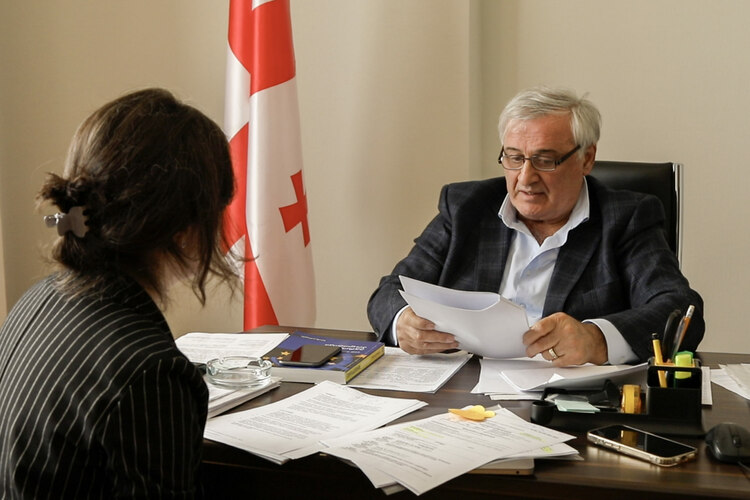
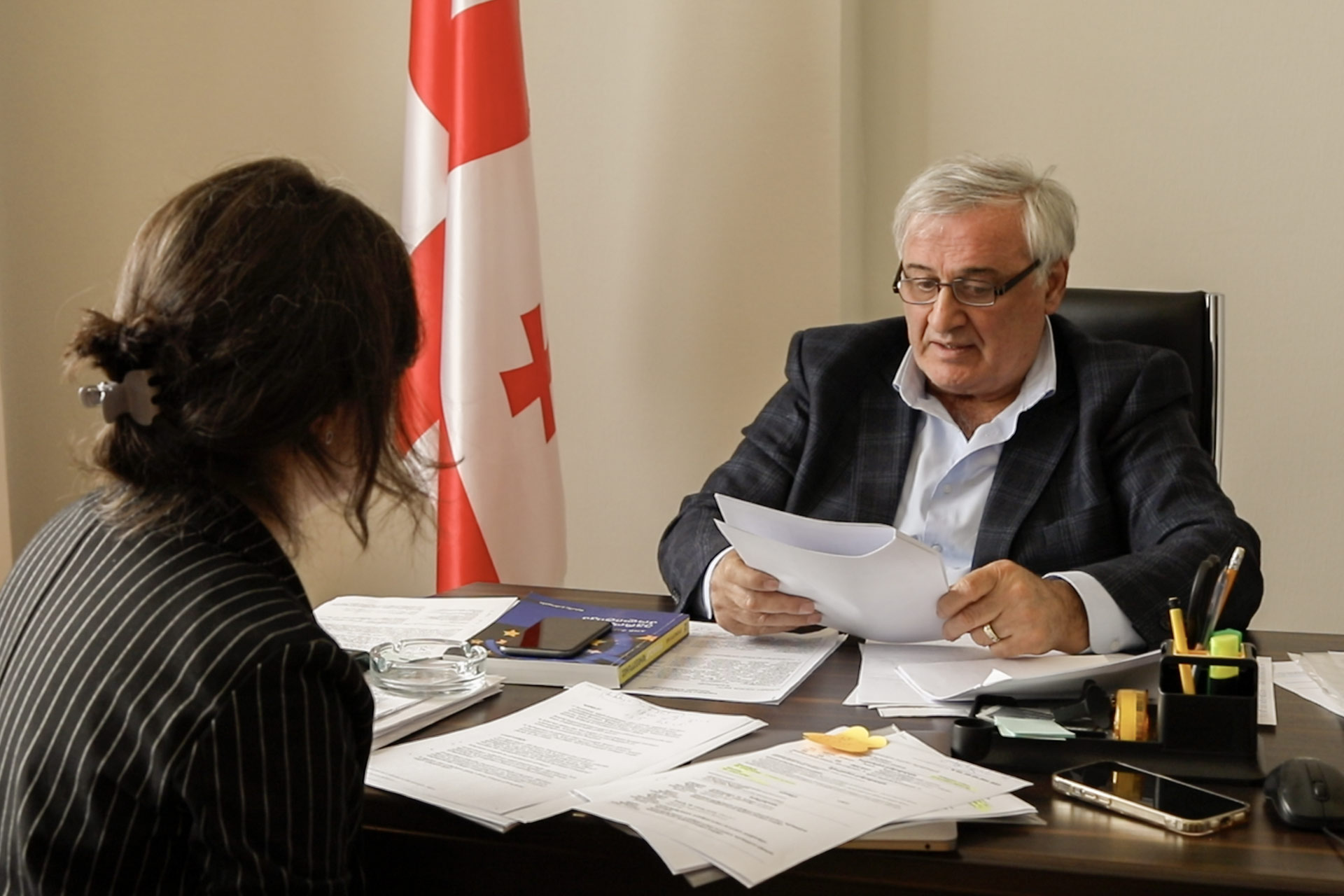
Credit:
iFact
Dilar Khabuliani speaks to a reporter at his office in Georgia’s parliament.
He also claimed to have forgotten which High Council candidates he had voted for. “I don’t remember,” he said. “I supported whoever I agreed with.”
The Tbilisi city council did not respond to questions from journalists.
Georgia’s judiciary is under pressure from the European Union to reform as part of its bid to join the EU, and the High Council has come in for particular criticism. One of its members, Levan Murusidze, is currently under U.S. government sanctions for allegedly abusing his position and undermining rule of law.
Murusidze is also believed to be among the leaders of a group of judges loyal to the ruling party known as the “clan”, who independent watchdogs and senior Georgian politicians say have taken control of the country’s judicial system.
OCCRP has previously reported on the unexplained wealth of Murusidze and another alleged “clan” leader, Mikheil Chinchaladze, who was also sanctioned by the U.S. last year, alongside Murusidze and two other judges.
A report by Transparency International noted that two of the successful candidates in the High Council election had worked alongside the U.S.-sanctioned judges. The third was nominated by a “Young Barristers’” association that Transparency said was linked to the ruling party.
Most High Council spots are filled by judges appointed every four years, but this vote was for the body’s five lay non-judge members. Those positions had been vacant for two years, and the vote had been deemed long overdue by the European Commission.
Of the 29 candidates, seven received the unanimous vote of Georgian Dream MPs. Three of these same candidates also gained votes from opposition politicians, pushing them over the three-fifths majority threshold to seal High Council spots.
The Venice Commission, a European legal watchdog that has called for the reform of the High Council of Justice, voiced concern over the result, saying that the pluralism of the council had been questioned due to claims “they may be linked to the group of judges that allegedly controls the judicial members” of the institution.
Some opposition MPs were so outraged they walked out of the chamber before the remaining two High Council seats could be filled. A vote for those seats took place a few months later in an election again criticized by a Georgian court watchdog for failing to elect any civil society candidates.
How Khabuliani Voted
Khabuliani, a 71-year-old lawmaker from the picturesque mountain town of Lentekhi, has had a colorful career. As a young man, he won a gold medal at the 1977 European judo championships in Germany and became one of Soviet Georgia’s best-known sportsmen.
In the turbulent period following the fall of the Soviet Union, he served as Minister of Internal Affairs from 1991 to 1992, then a personal bodyguard for Georgia’s first president, Zviad Gamsakhurdia. In parliament, he has switched parties four times and was previously affiliated with the largest opposition party, the United National Movement.
The election of the five lay High Council members in which Khabuliani played such a key role is done by secret ballot, unlike the usual parliamentary process. Each candidate needed 90 votes from the 150-seat parliament to be elected, and MPs could vote for as many candidates as they wanted.
The ruling party could only count on 88 votes being cast in their preferred candidates’ favor — Georgian Dream’s 75 seats, plus 13 allies from loyal minority parties. Without the opposition’s help, they would not have reached the threshold.
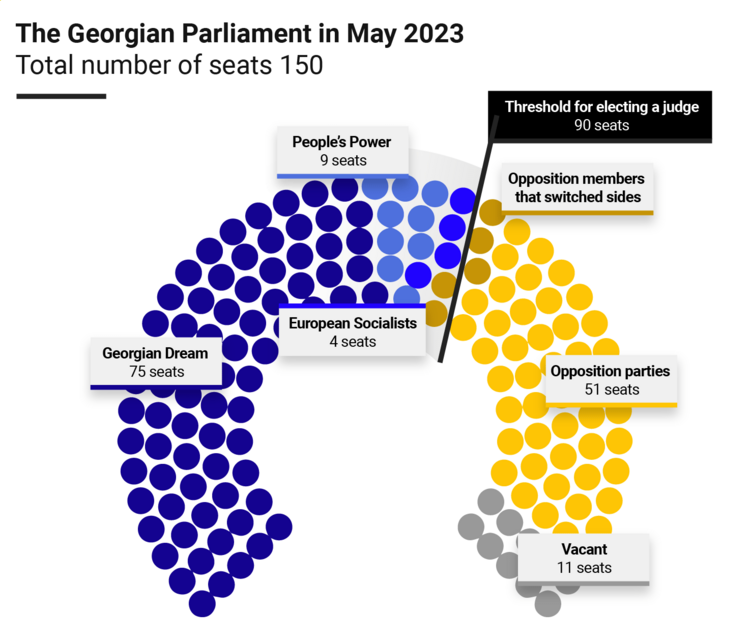
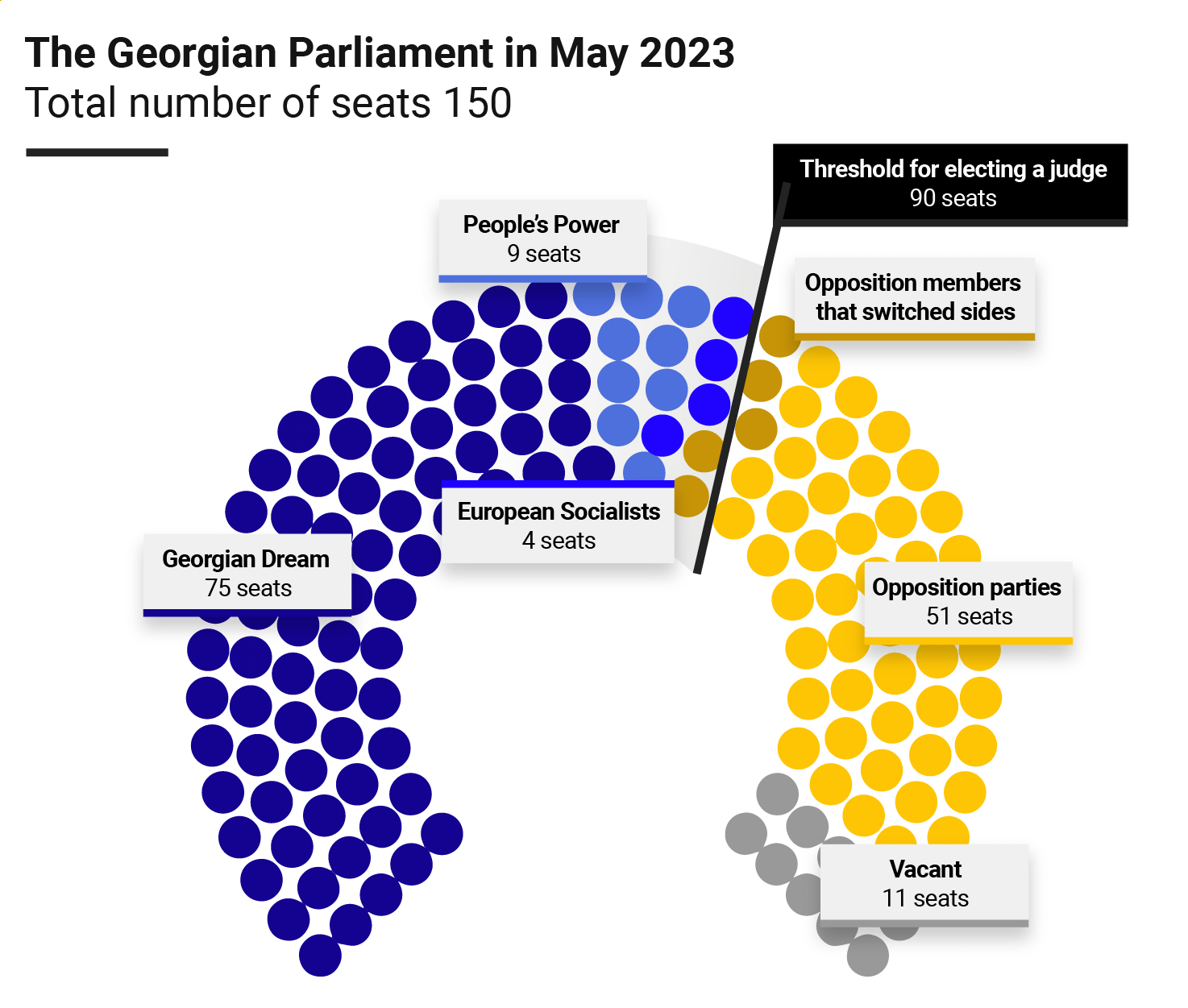
Credit:
James O’Brien/OCCRP
Khabuliani said publicly he had only voted for one candidate, a civil society figure who was not elected. However, using video footage of the May 17 parliamentary session, reporters from iFact found he had actually voted for two of Georgian Dream’s preferred candidates, helping them gain just enough votes to secure High Council seats.

External content from YouTube
This content is provided by a third-party. By playing this content, you consent to cookies being set and personal data processed by the third-party provider.
🔗What The Video Analysis Showed
As Khabuliani was potentially pivotal to the appointment of Georgian Dream’s preferred candidates, iFact decided it was in the public interest to look into how he had voted.
The voting process worked like this: the speaker would read out the name of a candidate, and if an MP wished to cast their vote for that person, they pressed an electronic voting button on the desk in front of them. If not, they simply refrained from pressing it.
Khabuliani was seated at the back of the hall; reporters confirmed this using media footage from public broadcaster 1TV showing him getting up to leave at the end of the May 17 session.
Footage of the actual voting was published by parliament on its official website. There, however, Khabuliani is just out of frame so his face isn’t visible.
But reporters discovered that his electronic button is.
When the speaker called out the name of Tristan Benashvili – a lawyer and the first of Georgian Dream’s preferred candidates to come up — the video clearly shows Khabuliani’s arm reaching out and pressing the vote button. Thanks to the support of Khabuliani and four other opposition MPs, Benashvili was elected to the Council with 93 votes, just over the necessary three fifths.
The video shows that Khabuliani also voted for Zurab Guraspashvili, a ruling-party-approved candidate who also received 93 votes. He was a senior official at the Ministry of Internal Affairs at the time.
Opposition leaders accused four men and one woman of trading their ballots for under-the-table quid pro quo deals.
Three opposition MPs have since confirmed they voted for the successful candidates, while one MP said he had voted “for several” but did not identify them, adding that there was “no motivation or interest” behind it. Only Khabuliani continued to insist that he did not vote for the Georgian Dream candidates.
When pressed by reporters in an interview this month, he reiterated that he did not remember how he voted.
City Council Resolves Long-Running Land Disputes
Just two days after the vote, the Tbilisi City Municipal Assembly, in which Georgian Dream holds a majority, gathered in an extraordinary session. Of the 42 items on the agenda, it made at least two key decisions in favor of companies owned by Khabuliani’s family members.
Only the mayor of Tbilisi and the assembly chairman, both of whom are currently Georgian Dream members, can request an extraordinary session, unless 10,000 citizens petition for it. The meeting must happen within a week of it being called. (The assembly did not respond to questions from reporters on who called the extraordinary session in May 2023.)
At this meeting, the assembly agreed to restore confiscated land to one of the Khabuliani family’s firms after years of dispute. Another of the family’s firms was granted permission to use a parcel of land for private use.
The first firm, Sport Club Duchi, is now owned by Khabuliani’s son George, but it was founded in 2006, when George was just 2 years old, by a man Khabuliani says is his “partner.”
🔗Sport Club Duchi and the Khabuliani Family
In Georgia, parliamentarians can own businesses but cannot play an active role in them — they must appoint a representative while they are in office.
Khabuliani served in parliament from 2008 to 2012, and from 2020 to the present. Because of this, he told reporters, a man he identified as his business partner, Zezva Chankseliani, owned all of the company’s shares at first.
“I was an MP and it was not possible then,” Khabuliani said, adding: “You know the legislation … it was because of this that my partner Chankseliani was the owner of 100 percent while I was a member of parliament.”
Khabuliani bought 50 percent of the company’s shares in 2013, but two years later the whole firm — including his partner’s shares — was given to Khabuliani’s son George, then 11 years old, with Khabuliani and his wife serving as the boy’s representatives.
Asked why he had gifted his shares to George, Chankseliani told reporters that the boy was his son’s godfather.
In 2020, Khabuliani re-entered parliament and he told reporters that he was scrupulously keeping a distance from the company’s operations until he retired from politics. However, he made it clear that he maintained links to the firm and said he might resume his involvement later. “When my parliamentary activities are over and I’m not an MP, I’ll probably get involved,” he concluded.
The company was allowed to privatize a five-hectare plot of state land in 2008 and 2009 for 100,001 lari ($56,000) to develop it as a sports complex open to the public, with discounted fees for disadvantaged families. In exchange, the company was supposed to invest 2.2 million lari ($1.2 million at the time) building sports facilities including outdoor and indoor soccer fields, boxing and wrestling gyms, a volleyball court, and a swimming pool.
The company did operate a martial arts gym there as well as a soccer field. But it also rented out the larger part of the gym building to a local university as classrooms and lecture halls. The Tbilisi municipal government confiscated the land in 2020 because it viewed this side business as a breach of their agreement.
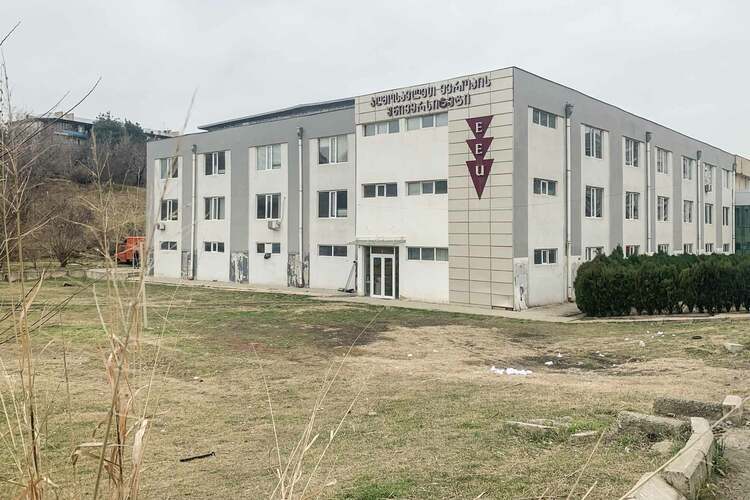
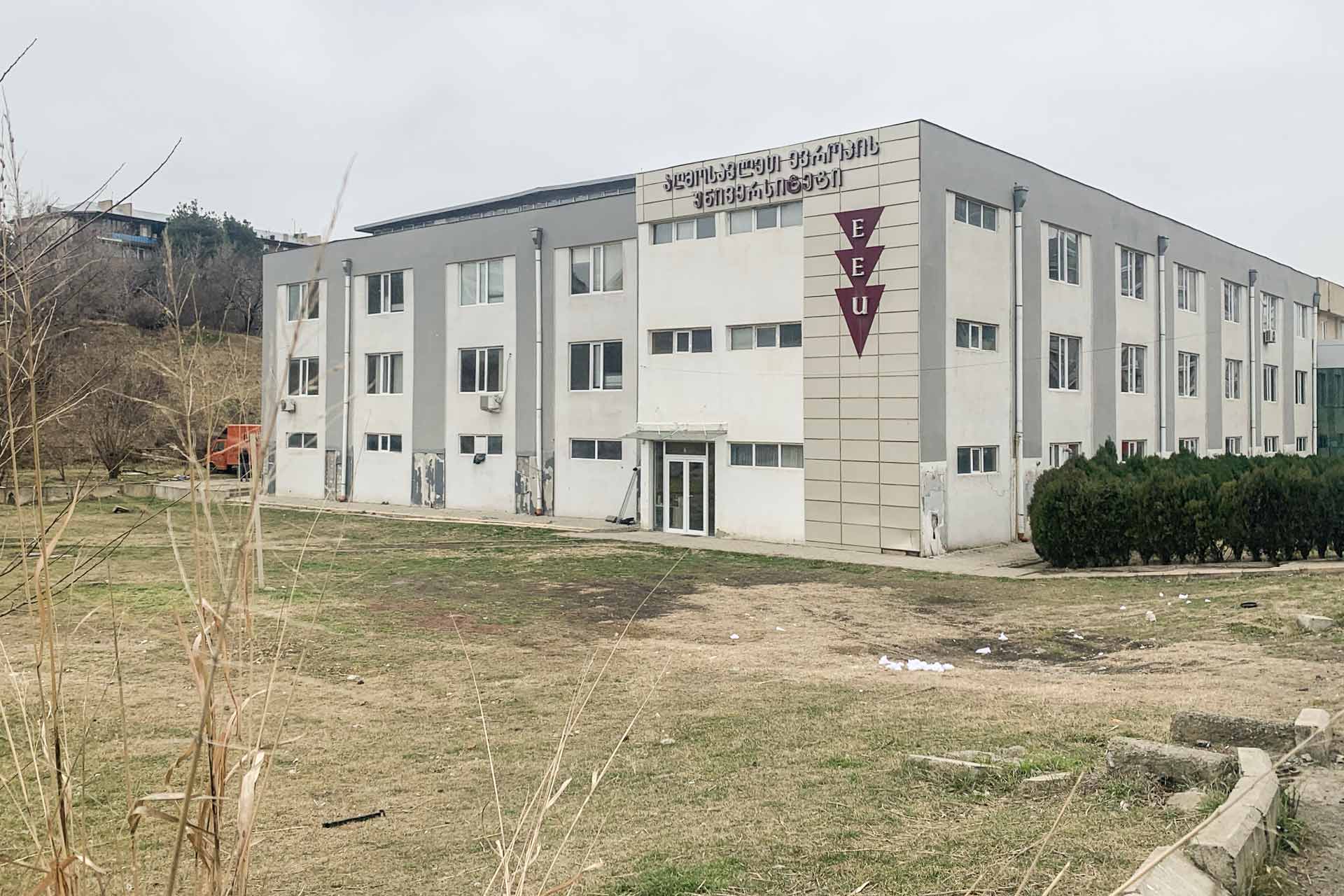
Credit:
iFact
Sport Club Duchi built this structure on the land it obtained from the municipality, then rented most of it out to a private university.
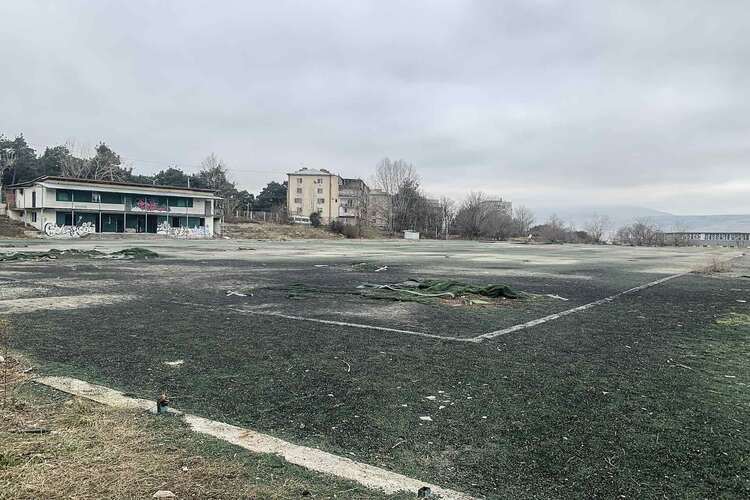
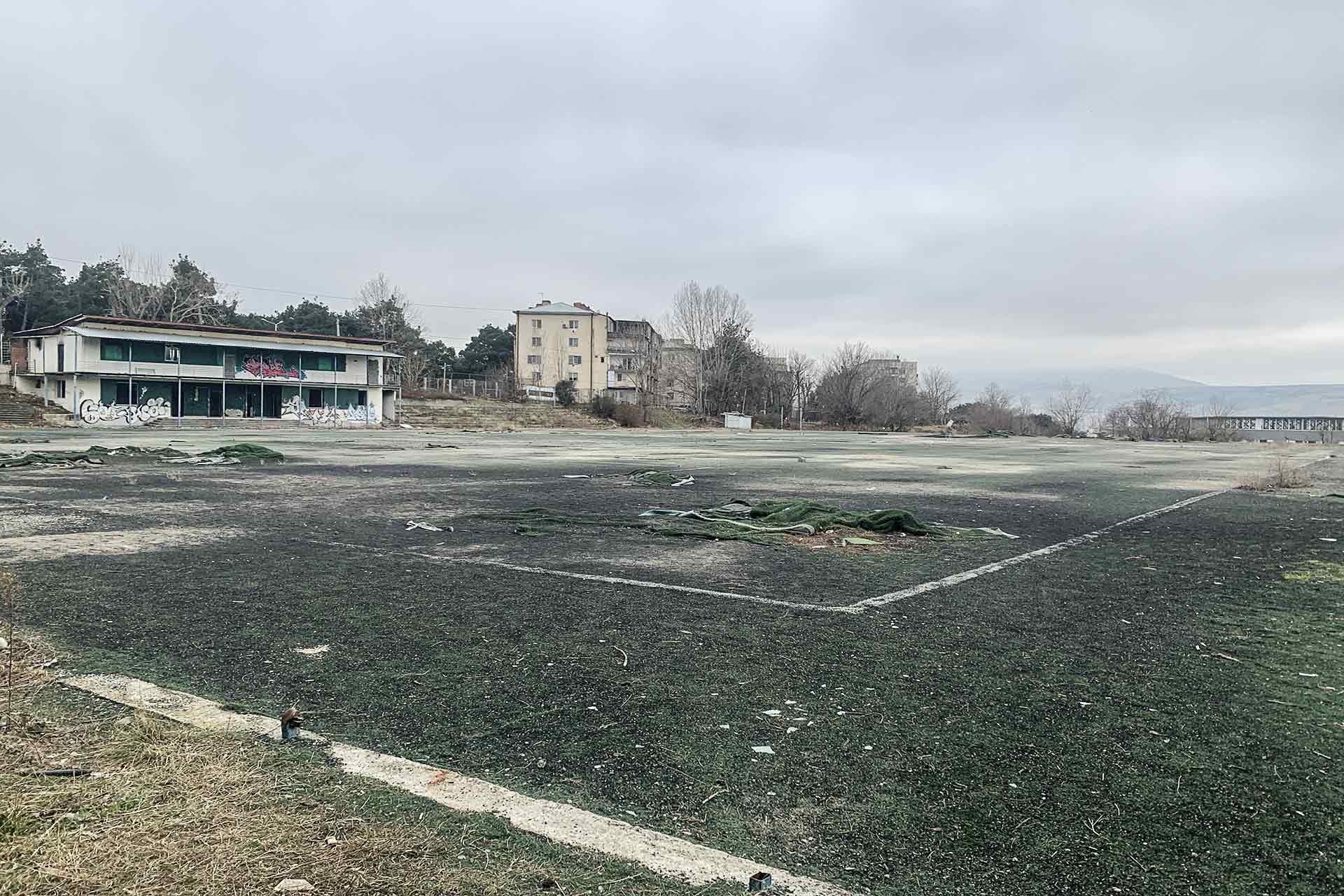
Credit:
iFact
A field at Sport Club Duchi, whose land was confiscated by the Tbilisi municipal government after the club was accused of not fulfilling its obligations under a privatization agreement. The land was later returned after the High Council vote.
At the extraordinary meeting just after the vote in parliament, Tbilisi city council appeared to have a change of heart, and approved a new proposal from Sport Club Duchi for the confiscated land to be released back to the company. Documents showed the company had submitted the proposal to the municipal government the month before.
Under the new terms, it regained the land in exchange for investing an additional 200,000 lari (over $75,000) in sports infrastructure there. An “educational” function was added to the designated uses, officially permitting the company’s rental agreement with the university.
Khabuliani told iFact this aspect of the proposal had been added on his initiative. “I had them write that,” he said.
In his interview with iFact, Khabuliani admitted that the timing of the decision to restore the company’s land “raises suspicions.”
“I would definitely have the same question you have,” he told reporters. “But the reality is completely different.”
At the same extraordinary meeting in May 2023, the city council also made a favorable decision for another sports company linked to the politician: Kaidzen Sport LLC, which has belonged to his nephew, Mikheil, since 2009.
In another privatization agreement similar to the Sport Club Duchi deal, Kaidzen acquired three parcels of state land in 2008 totalling over 8,000 square meters in different parts of Tbilisi for a low price: just 10,000 lari (worth around $7,000 at that time). In exchange, the company was expected to build playing fields, boxing and judo facilities, and a gym there. But in May 2010, the municipal government seized all three plots, saying it had not fulfilled its obligations. Later the same year, the municipal government returned two of the parcels of land to Kaidzen for 1 lari.
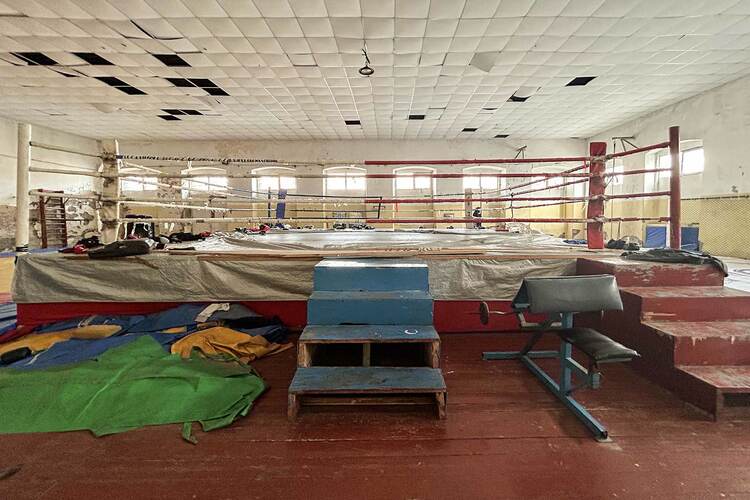
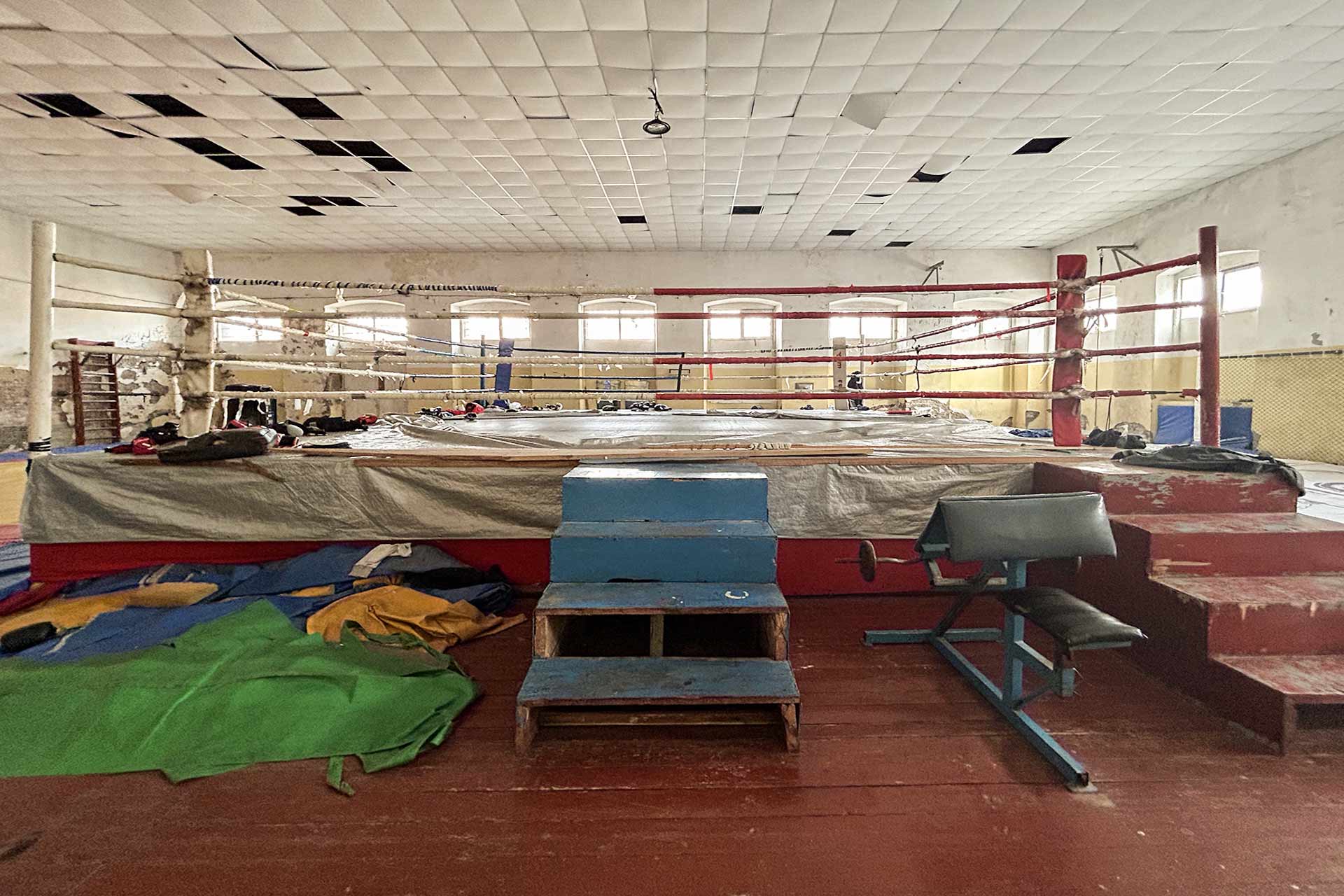
Credit:
iFact
A boxing gym in Tbilisi owned by Kaidzen Sport.
In 2020, authorities again took action against the company, this time confiscating part of its land because sports facilities there did not comply with the conditions of sale.
Two months before Khabuliani cast his crucial parliamentary votes, Kaidzen asked the municipal government to certify that it had fulfilled its obligations on the land it still controlled. At the extraordinary meeting, the city council decided Kaidzen could convert one of its plots to private use. It declared the company had fulfilled its obligations on the other plot.
When iFact contacted Mikheil Khabuliani by phone, he said he was unaware of what was happening at the company because he lived abroad. He asked reporters to call back two days later but hung up when they did so.
Reporters found that a representative of the lawmaker’s son George — who is now 20 years old — applied to transfer all Kaidzen’s shares to the young man in January 2024, though the application was rejected for technical reasons.
Dilar Khabuliani acknowledged some people think he is the owner of Kaidzen, telling reporters it’s because he has a “recognizable face.”
Reviewing the findings of iFact’s investigation, Sandro Kevkhishvili, an expert with Transparency International’s Georgia chapter, said they went some way to addressing questions over why opposition MPs may have made the decision to help the ruling party.
“The suspicions were already there, and now you [reporters] have found specific facts, the combination of which will strengthen the suspicion that these are connected events,” he said.
The European Commission’s 2023 report on Georgia’s EU application said while some judicial reforms had been implemented, important others had not, including a comprehensive overhaul of the High Council.
“Further broader reforms to ensure the full independence, accountability and impartiality of all judicial and prosecutorial institutions, especially the HCJ, need to be undertaken in line with European standards and the recommendations of the Venice Commission,” the report said.
Georgia was granted candidate status by the EU in December 2023 and is one of nine current candidate countries.
Nazi Janezashvili, the director of the NGO Georgian Court Watch, said membership on the High Council of Justice was often connected with politics.
“This institution, especially in recent years, can no longer fulfill its role,” she told OCCRP.
“People should be elected there on the basis of merit and experience, not on the basis of either being close to someone or because it suits someone to elect them there. ”she said.
Kelly Bloss (OCCRP) contributed reporting.
Fact-checking was provided by the OCCRP Fact-Checking Desk.